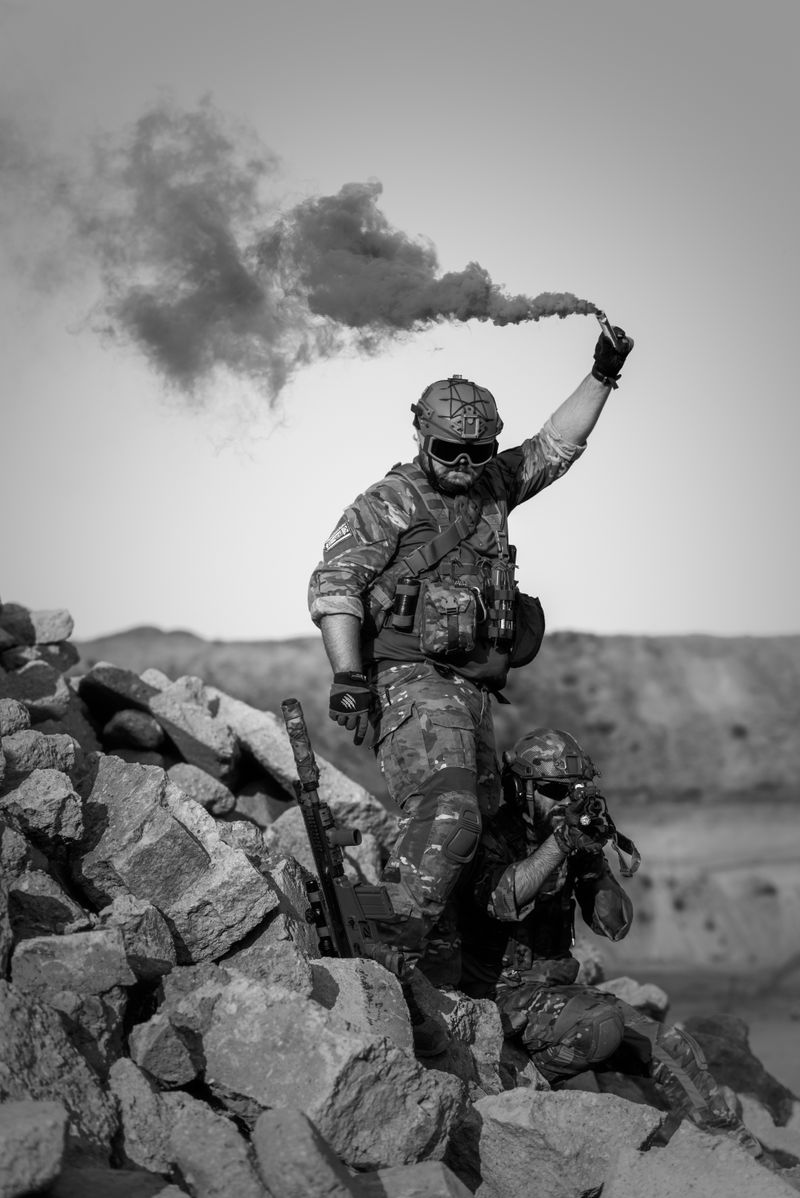Table of Contents
Cluster Munitions: New Use, Transfers Challenge Total Ban
Civilian Harm from Prohibited Weapon
In a global report titled “Cluster Munition Monitor 2023,” Human Rights Watch highlights the urgent need for countries to join the international ban on cluster munitions. The report reveals that the use of cluster munitions in 2022 resulted in the deaths or injuries of at least 987 people, with 95% of these casualties being civilians. The use of cluster munitions is particularly concerning because they cause both immediate and long-term harm, leaving behind unexploded remnants that act as landmines for years.
An Abhorrent Weapon
Cluster munitions are fired from the ground by various means, such as artillery, rockets, missiles, and mortar projectiles, or dropped by aircraft. When released, they disperse multiple submunitions or bomblets over a wide area. Many of these submunitions fail to explode on impact, resulting in unexploded remnants that pose a serious threat to civilians. Despite the global ban on cluster munitions, some countries continue to use them, causing needless harm and suffering.
Cluster Munitions in Ukraine and Syria
Ukraine has been particularly affected by cluster munitions, with 890 casualties recorded in 2022. Russia has repeatedly used cluster munitions in Ukraine since its invasion in February 2022, causing civilian deaths and injuries. The Monitor also reports that the Myanmar military and Syrian government forces used cluster munitions in 2022, further endangering civilian lives. It is worth noting that none of these countries have signed or ratified the international treaty banning cluster munitions.
Casualties from Cluster Munition Remnants
The report reveals that there were no new casualties from cluster munition attacks in 2021, but at least 149 victims were identified from remnants of earlier attacks. These casualties were primarily a result of unexploded submunitions. In 2022, there were a total of at least 185 casualties from cluster munition remnants in various countries, including Azerbaijan, Iraq, Laos, Lebanon, Syria, Ukraine, and Yemen. Shockingly, children accounted for 71% of all cluster munition casualties within recorded age groups.
Recent Transfers and Criticisms
Russia has used both old and newly developed cluster munitions in Ukraine since 2022. In July 2023, the United States began transferring an unspecified quantity of its stockpiled 155mm artillery-delivered cluster munitions to Ukraine. This decision has drawn criticism from at least 21 government leaders and officials, including those from countries supporting Ukraine’s war effort. The transfer of these weapons undermines the principles of the international ban and hinders global efforts to eradicate cluster munitions.
Progress and Challenges
A total of 112 countries have ratified the 2008 Convention on Cluster Munitions, with 12 more signing the treaty, indicating their willingness to abide by its provisions. Since the convention’s adoption, parties to the treaty have collectively destroyed nearly 1.5 million cluster munitions and 178.5 million submunitions, accounting for 99% of the declared cluster munition stocks. Although progress is being made, 26 countries and 3 other areas are still contaminated or suspected to be contaminated by cluster munition remnants, presenting ongoing challenges.
Urgent Action and International Stigma
The report emphasizes that cluster munitions are widely stigmatized weapons due to ethical, legal, and humanitarian reasons. Governments that continue to use or support the use of cluster munitions should reconsider their position, taking into account the devastating harm caused by these weapons. Joining the international ban on cluster munitions is crucial in order to protect civilian lives and uphold humanitarian standards.
Conclusion: A Call for Action
The “Cluster Munition Monitor 2023” report serves as a wake-up call to the international community. The use of cluster munitions, as well as their transfer and production, remains a significant challenge despite the global ban. Countries that have not yet joined the international treaty banning cluster munitions should seriously consider the immediate cessation of their use and the ratification of the convention. The need to protect civilians from the indiscriminate harm caused by these weapons is paramount, and collective action is necessary to achieve a world free from cluster munitions.

<< photo by Pixabay >>
The image is for illustrative purposes only and does not depict the actual situation.
You might want to read !
- South Sudan Joins Global Efforts in Banning Cluster Munitions
- “Examining Russia’s Controversial Use of Cluster Munitions in Ukraine”
- US Plan to Transfer Cluster Munitions to Ukraine: Undermining International Efforts towards Safeguarding Civilians
- Lebanon’s Growing Threat to LGBTI Rights: An Assault on Freedom and Equality
- Exploring Comprehensive Solutions at the Climate Summit: Beyond Carbon Markets
- Climate Justice for Africa: Engaging with the Paris Agreement Implementation and Compliance Committee
- Jordan’s Path to Social Protection: Taking it All the Way
- Putting People’s Rights at the Forefront: A Call for Ethical Syrian Sanctions
- Why Poverty Targeting Algorithms in Jordan are Raising Concerns Over Human Rights